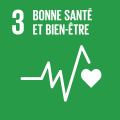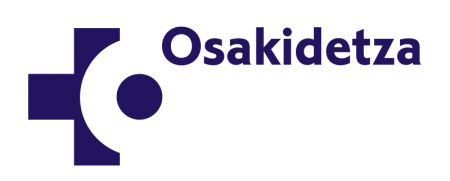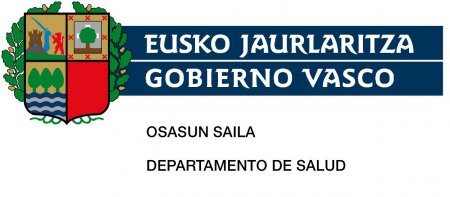
Primeros auxilios psicológicos y resiliencia en tiempos de crisis
Description
Psychological First Aid (PFA) is a set of techniques based on scientific evidence, aimed at strengthening the resilience of individuals, teams and communities. Its goals are to reduce symptoms of stress and contribute to a healthy recovery after a traumatic event, such as a natural disaster, a public health emergency, or even a personal crisis. The emotional impact of these types of situations is not always as visible as that of physical injuries, but it can be even more painful and disabling than physical injuries.
Resilience, in turn, is the ability of individuals and communities to recover from a potentially traumatic situation by expanding resources for coping, generating learning that reinforces their own identity and their crisis response without the presence of sequelae or of chronification of symptoms.
Both concepts are not new, but until now they have remained within the specific field of knowledge of psychology. However, the health, economic and social crisis associated with the COVID19 pandemic has placed the skills for emotional management and coping with complicated situations in the focus of many publications. On the one hand, this disclosure is helping a lot to raise awareness about the importance of good mental health, opening spaces for activities of self-knowledge and emotional care. But, on the other hand, not all the information that has been shared in recent times has enough precision and rigor to be really useful to people.
This Course is designed for people with a basic understanding of psychology, medicine, nursing, or public health. It aims to offer a broad, evidence-based view of how we can help ourselves, our loved ones, and the people we work with to better cope with any critical event that we face during our personal and professional lives. The Course offers a practical overview of what to do and not do in these types of situations and about the risk factors and protective factors involved in them. Finally, it also raises awareness about self-care activities, both those necessary on a personal level and those required in the professional field.
Objectives
Reconocer las características del impacto de los eventos críticos sobre las personas, las familias, los equipos y las comunidades.
Adquirir nociones básicas sobre cómo,dónde y cuándo aplicar los Primeros Auxlios Psicológicos.
Comprender la forma en que los Primeros Auxilios Psicológicos potencian la resiliencia de las y los posibles afectados.
Incorporar las prácticas de auto-cuidado como una parte esencial del afrontamiento de las crisis.
Activity directed to
- University student
- Teachers
- Professionals
- All public
- Profesionales sanitarios
Program
27-06-2022
Registro
Presentation by the Director of the activity
- Alicia Alvarez | UTCCB - Directora Asistencial y de Investigación
“¿Qué convierte una situación en evento crítico para las personas, las familias, los equipos y las comunidades?“
- Alicia Alvarez | UTCCB - Directora Asistencial y de Investigación
“Afrontamiento funcional frente a patrones de respuesta disfuncionales ante los eventos críticos “
- Ingeborg Porcar Becker | UTCCB - Directora técnica
Break
“Objetivos y alcance de los Primeros Auxilios Psicológicos“
- Alicia Alvarez | UTCCB - Directora Asistencial y de Investigación
“Condiciones de aplicación de los Primeros Auxilios Psicológicos“
- Ingeborg Porcar Becker | UTCCB - Directora técnica
Synthesis
28-06-2022
Repaso de conceptos más importantes tratados el día anterior y resolución de dudas
“Factores protectores y de riesgo ante los eventos críticos“
- Ingeborg Porcar Becker | UTCCB - Directora técnica
“El seguimiento preventivo como abordaje comunitario de las crisis“
- Ingeborg Porcar Becker | UTCCB - Directora técnica
Break
“La resiliencia, qué es y de qué depende“
- Alicia Alvarez | UTCCB - Directora Asistencial y de Investigación
Synthesis
29-06-2022
Repaso de los conceptos del día anterior y resolución de dudas.
“Factores potenciadores de la resiliencia individual y colectiva“
- Alicia Alvarez | UTCCB - Directora Asistencial y de Investigación
“Los primeros auxilios psicológicos como potenciadores de la resiliencia“
- Ingeborg Porcar Becker | UTCCB - Directora técnica
Break
Exposición de los miniretos elaborados durante el curso
Closing session
- Alicia Alvarez | UTCCB - Directora Asistencial y de Investigación
Directors
PhD in clinical Psychology and a specialization on emergencies, catastrophes, and urgencies as well as in PTSD and trauma. She has 11 years of experience both on clinical practice and crisis response management. Currently she is the Care&Research director at the UTCCB from UAB and combines this position with her job as lecturer in different universities as Universitat de Barcelona, Universitat Politècncia de Barcelona, Universitat Oberta de Catalunya and the Harvard Medical School from Boston.
Speakers
Psychologist (Ph.D), Accreditation in Clinical Psychology and Crisis Management, Associated Professor at UAB, Founder and Director of the UTCCB, a Trauma, Crisis and Conflict Center at the Faculty for Psychology at UAB.
Registration fees
| Live online | Until 27-06-2022 |
|---|---|
| 110,00 EUR | |
| 94,00 EUR | |
| 77,00 EUR | |
| 27,50 EUR | |
| 94,00 EUR | |
| 0 EUR |
Venue
Online streaming (ZOOM)
Online streaming (ZOOM)
Online streaming (ZOOM)
Online streaming (ZOOM)
Sustainable development goals
Agenda 2030 is the new international development agenda approved in September 2015 by the United Nations. This agenda aims to be an instrument to favour sustainable human development all over the planet, and its main pillars are the eradication of poverty, a reduction in equality and vulnerability and fostering sustainability. It is a unique opportunity to transform the world up to 2030 and guarantee human rights for all.

3 - Good health and well-being
Guarantee a healthy life and foster the well-being of all people of all ages. Key issues: universal healthcare coverage, sexual and reproductive health, reduction in the number of road accident casualties, pollution and chemical products, reduction in maternal and neonatal mortality, the end of epidemics such as AIDS, combating hepatitis and other water-borne diseases, drug and alcohol prevention, control of tobacco.
More information









